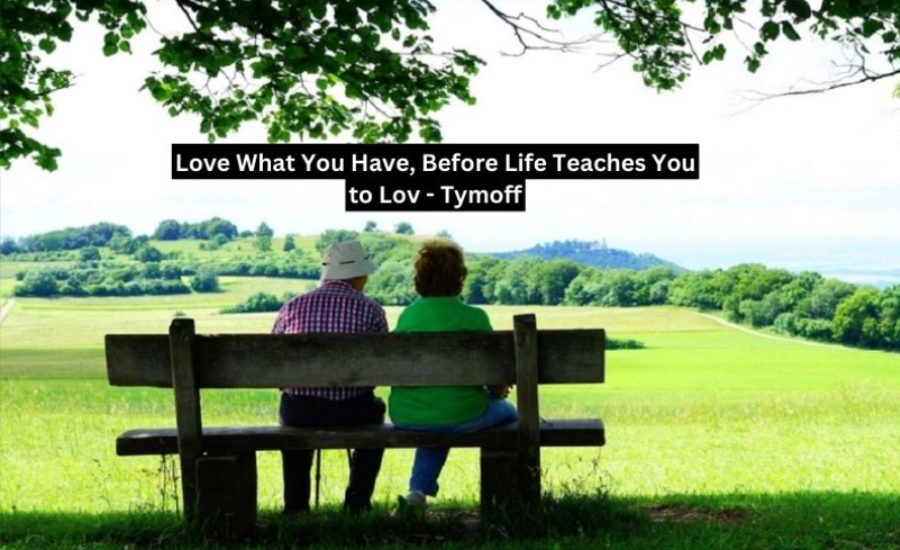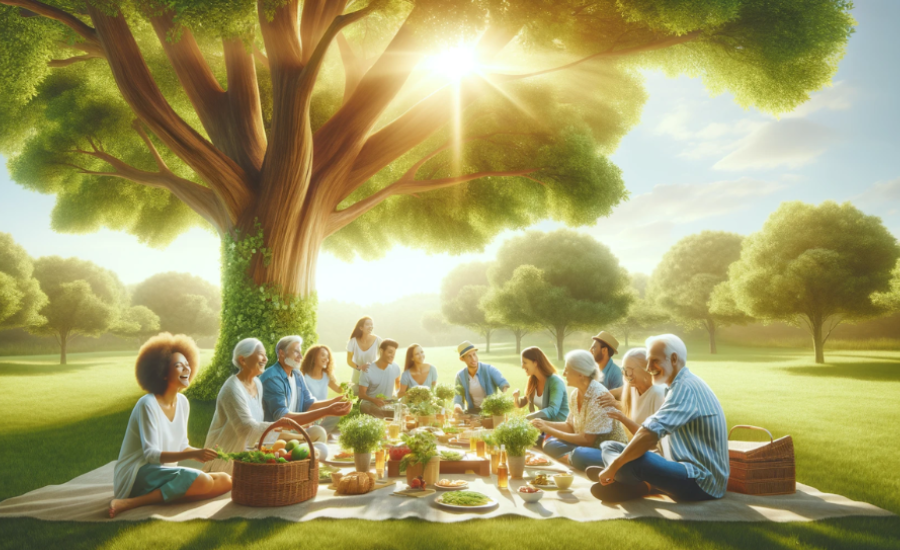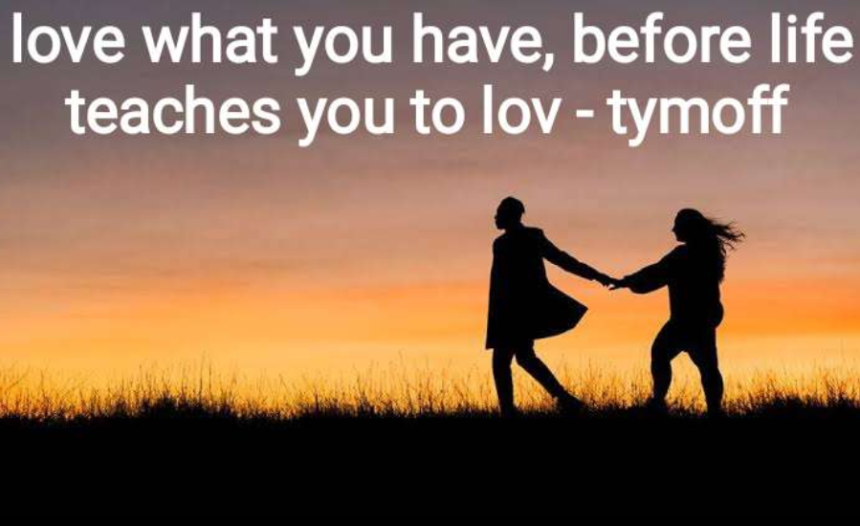In today’s fast-paced world, dominated by the endless pursuit of success, material wealth, and recognition, it is easy to overlook the blessings already present in our lives. The constant drive for more—more achievements, more possessions, more experiences—can blind us to the beauty of the here and now. The profound message in Ilya Tymoff’s words, “Love What You Have, Before Life Teaches You to Lov – Tymoff,” serves as a gentle but urgent reminder to pause, reflect, and cultivate gratitude. This wisdom encourages us to appreciate the present moment, fostering a mindset of contentment and emotional resilience. In this exploration, we will delve deeply into how Tymoff’s philosophy not only inspires a deeper appreciation for life but also offers practical tools for living more mindfully and gratefully.
Understanding Gratitude: The Key to a Fulfilling Life
Gratitude is more than simply saying “thank you” or experiencing fleeting moments of happiness—it is a transformative mindset that has the power to reshape how we perceive and interact with the world around us. Tymoff’s quote, “Love What You Have, Before Life Teaches You to Lov – Tymoff,” underlines the importance of embracing the blessings we already possess, rather than focusing solely on what we lack or desire. This shift in perspective allows us to recognize and celebrate the abundance in our lives, from good health to the support of loved ones, and even the small comforts of daily living.
Research shows that practicing gratitude has profound psychological benefits. Studies have linked gratitude to increased levels of happiness, improved mental health, and even physical well-being. When we embrace gratitude, we train our minds to see life’s positives rather than dwelling on negatives or perceived shortcomings. This creates a sense of emotional abundance, which, in turn, helps us cope better with challenges and setbacks. Gratitude becomes a skill that strengthens with consistent practice, helping us transition from a scarcity mindset—where nothing feels enough—to one of abundance, where we find joy in the present moment.
Moreover, gratitude is a cornerstone of emotional resilience. When we learn to love and appreciate what we have, we equip ourselves with a tool to navigate life’s inevitable difficulties. This mindset not only enriches our lives but also fosters a sense of balance, enabling us to appreciate life in its entirety, even during its less perfect moments.

Living in the Present: A Path to True Contentment
In a world filled with constant distractions—from the allure of social media to the demands of work and technology—living in the present has become an increasingly rare and undervalued skill. Tymoff’s timeless wisdom, “Love What You Have, Before Life Teaches You to Lov – Tymoff,” invites us to step away from this cycle of distraction and instead focus on the richness of the present moment.
When we live in the present, we free ourselves from the weight of past regrets and the anxiety of future uncertainties. Mindfulness, the practice of being fully engaged with the here and now, plays a vital role in achieving this. Studies have shown that mindfulness improves emotional regulation, reduces stress, and enhances overall happiness. By savoring life’s seemingly mundane moments—such as a heartfelt conversation, a walk in nature, or simply enjoying a meal—we begin to uncover the extraordinary within the ordinary.
Mindfulness also complements gratitude by helping us fully appreciate our current blessings. Together, they form a powerful duo, enabling us to experience life’s richness in its entirety. When we focus on the present, we shift our attention from what we lack to what we already have, finding contentment in simplicity and authenticity.
Embracing Imperfection: Finding Beauty in the Ordinary
In a society obsessed with perfection—whether it’s in appearances, accomplishments, or lifestyles—it can be challenging to find contentment in imperfection. Tymoff’s philosophy, “Love What You Have, Before Life Teaches You to Lov – Tymoff,” encourages us to break free from this perfectionist mindset and instead find beauty in life’s flaws and imperfections.
Life’s true charm often lies in its imperfections—the warmth of a shared laugh, the bittersweet beauty of a fleeting moment, or the quiet serenity of an ordinary day. By shifting our perspective to appreciate these aspects, we liberate ourselves from societal pressures that demand unattainable ideals. This shift fosters a deeper sense of self-acceptance and appreciation for the world around us.
When we embrace imperfection, we also nurture authenticity. True happiness is not found in chasing perfection but in celebrating life as it is—raw, messy, and beautiful in its complexity. By loving what we have, imperfections included, we create space for greater joy, peace, and self-compassion.
Avoiding Regrets: The Urgency of Cherishing the Present
Regret is one of life’s most painful emotions, often stemming from missed opportunities to appreciate the present. Tymoff’s quote, “Love What You Have, Before Life Teaches You to Lov – Tymoff” serves as a poignant reminder of the fleeting nature of life. The present moment, however ordinary it may seem, is a treasure that grows in value as we actively cherish it.
By adopting a mindset of gratitude and mindfulness, we can significantly reduce the chances of future regret. Each day becomes an opportunity to celebrate the relationships, experiences, and blessings that we often overlook. This approach transforms the way we live, ensuring that we fully engage with and appreciate the richness of our lives.
Moreover, cherishing the present helps us build a life that feels meaningful and complete. When we take the time to express gratitude to loved ones, pursue activities that bring us joy, and acknowledge our blessings, we create a life rich with purpose and fulfillment.

The Role of Relationships in a Gratitude-Filled Life
At its core, Tymoff’s philosophy underscores the importance of relationships in cultivating a fulfilling and gratitude-filled life. Loving what we have is not limited to material possessions—it extends to the people who enrich our lives. Relationships flourish when nurtured with appreciation and mindfulness.
Expressing gratitude within relationships strengthens bonds, deepens trust, and fosters mutual respect. Whether it’s through a kind word, a thoughtful gesture, or simply spending quality time together, showing appreciation for those we love creates a ripple effect of positivity. This gratitude not only enriches our connections but also enhances our emotional well-being, as supportive relationships are a cornerstone of happiness.
Teaching Future Generations the Value of Gratitude
In an achievement-oriented society, teaching the next generation about gratitude has never been more crucial. Tymoff’s message, “Love What You Have, Before Life Teaches You to Lov – Tymoff” serves as a guiding principle for raising children who value presence, love, and appreciation.
By modeling gratitude in our daily actions, we can inspire children to adopt this mindset. Teaching them to express thankfulness for life’s blessings—big and small—lays the foundation for emotional resilience and lifelong contentment. This practice not only benefits individuals but also creates a more compassionate and interconnected society.
Frequently Asked Questions (FAQs)
Q: What is the core message of Tymoff’s quote?
A: The essence of Ilya Tymoff’s quote, “Love What You Have, Before Life Teaches You to Lov – Tymoff,” is to encourage gratitude for the present and a deeper appreciation for the blessings we already have. It emphasizes the value of mindfulness and contentment over chasing external validation or material gains.
Q: How can practicing gratitude improve one’s life?
A: Gratitude fosters emotional resilience, improves mental health, and enhances overall well-being. It helps shift focus from scarcity to abundance, allowing individuals to find joy and contentment in everyday moments.
Q: What role does mindfulness play in appreciating the present?
A: Mindfulness anchors us in the moment, allowing us to fully experience and savor life’s details. By pairing mindfulness with gratitude, we deepen our appreciation for what we have and uncover happiness in the simplest of experiences.
Q: How can Tymoff’s philosophy be applied to relationships?
A: Loving what we have extends to cherishing relationships. Expressing gratitude within personal connections strengthens bonds, builds trust, and enriches mutual respect. Simple acts of kindness and appreciation can deepen relationships and create lasting positivity.
Q: Why is it important to teach gratitude to future generations?
A: Instilling gratitude in children equips them with emotional resilience and a balanced perspective on life. It helps them value presence and love over materialistic achievements, fostering a more compassionate and connected society.
Conclusion
Ilya Tymoff’s quote, “Love What You Have, Before Life Teaches You to Lov – Tymoff,” encourages us to embrace gratitude and appreciate the present moment in a world often distracted by the pursuit of success and material gain. His philosophy promotes a shift from seeking external validation to valuing what we already have, fostering emotional well-being, resilience, and fulfillment. By practicing gratitude and mindfulness, we can savor life’s simple joys, embrace imperfections, and avoid regrets by cherishing our blessings. Tymoff also highlights the importance of nurturing relationships and modeling gratitude for future generations, ultimately reminding us that true richness in life comes from loving and valuing what we have right now.
Read Next: hypackel
